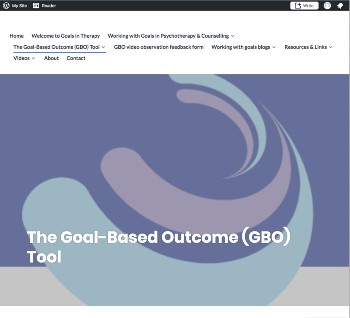Working with goals
Since the launch of Pragmatic Tracker in 2011 we've been passionate about the importance of keeping the focus on what's important to our clients, their priorities, preferences, sense of direction, their frustrations, wishes and desires around seeing change in what's important to them. Pragmatic Tracker is a valuable tool in helping us as practitioners, case workers, clinicians and coaches to keep our focus around the needs of our clients. We've always therefore had the ability to measure the goals as set by our clients as well as the ability to measure the improvements in their problems.
Goal based outcomes
More recently, we've become aware of a growing body of literature in this area and, in particular, the work of Professor Duncan Law around 'Goal-based outcomes'. We've made some minor adaptions in version 3 of Pragmatic Tracker so that using the 'Goals' feature in Pragmatic Tracker falls into line with Duncan Law's paper-based system.
"Recent evidence suggests that working with goals in counselling and psychotherapy can support positive therapeutic change. Goals can empower clients and give them hope: helping them feel that they have the capacity to act towards achieving their desired futures. Goals can help focus, and direct, clients’ and therapists’ attention, building a better therapeutic alliance. Through negotiating and setting goals, clients can develop a deeper insight into what it is they really want in life: a crucial first step towards being able to get there.
Policy developments in both child and adult mental health services support the use of goals in therapy. Goal-setting and goal-tracking can help to ensure that therapy is personalised to the individual client: so that they are working towards objectives that are of genuine importance to them."
From the introduction to 'Working with goals in psychotherapy and counselling', edited by Mick Cooper and Duncan Law
Can't find what you need?
Use the 'search' at the top left of every 'Help' page and type in what you need help with.



